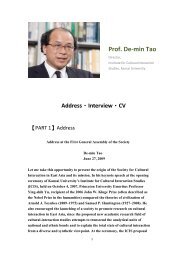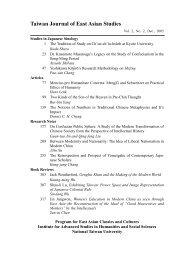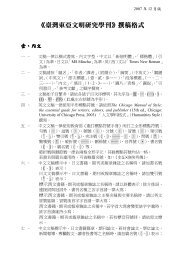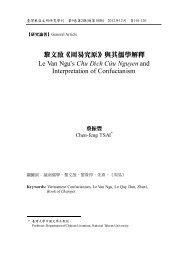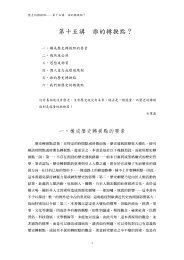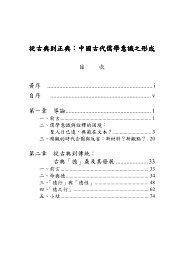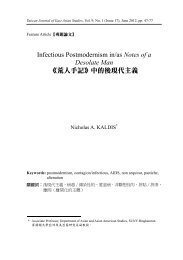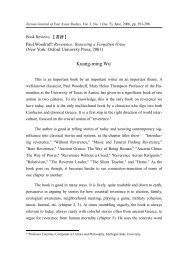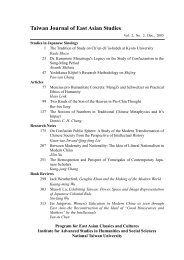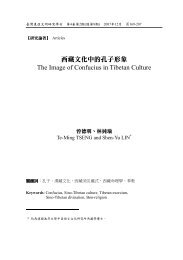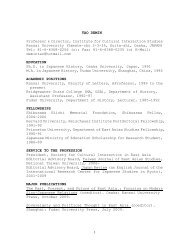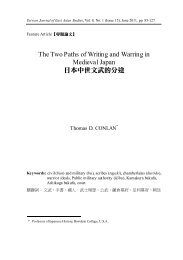臺灣東亞文明研究學刊 - 東亞經典與文化研究計畫 - 國立臺灣大學
臺灣東亞文明研究學刊 - 東亞經典與文化研究計畫 - 國立臺灣大學
臺灣東亞文明研究學刊 - 東亞經典與文化研究計畫 - 國立臺灣大學
You also want an ePaper? Increase the reach of your titles
YUMPU automatically turns print PDFs into web optimized ePapers that Google loves.
212 Taiwan Journal of East Asian Studies, Vol. 4, No. 2 (Iss. 8), Dec., 2007<br />
Therefore my paper can be understood as presenting some basic elements of<br />
Europeanness, which are not yet fixed, and established all over Europe, but which<br />
are a subject matter of an ongoing discussion.<br />
Before I start to answer the question what elements of a European culture can<br />
be identified as relevant for the future of Europe in the ongoing process of<br />
unification, I would like to start with a definitely negative answer to the question<br />
what European identity is and how it should be conceptualized. European identity<br />
cannot be stated or ordered by European institutions besides, beyond or above the<br />
established national, regional, and local historical cultures of the European<br />
countries. European identity cannot be an effective element in the cultural life of the<br />
European peoples if it is not rooted in the living and mentally powerful established<br />
historical cultures. Most of these cultures and their related identities are national<br />
ones. There are some members of the European Union like Spain or Belgium where<br />
this national dimension of historical identity is rather weak or even in a process of<br />
falling into pieces. But for these states the negative answer is true as well: Since<br />
they already refuse a national identity imposed on the traditional regional ones by a<br />
central government or a ruling elite they would even more refuse an imposed<br />
European identity developed by an institution of the European Union. Most of the<br />
European people would estimate such a European identity as highly artificial, or<br />
even strange for them since they have grown up in different traditions of their ideas<br />
of historical identity. Therefore a common European historical culture can only be a<br />
growing part of the already established national and regional historical cultures.<br />
Europe's Future in the Past<br />
Historical culture synthesizes experiences of the past and perspectives of the<br />
future. In this context Europe only has a future, if it has a common past. This<br />
common past can be identified in two respects: Firstly as a strong conviction of<br />
iv



